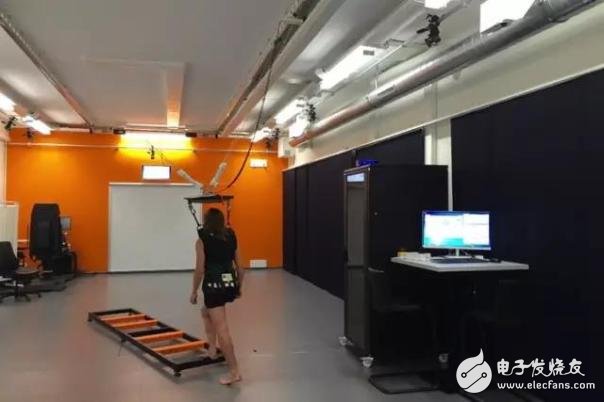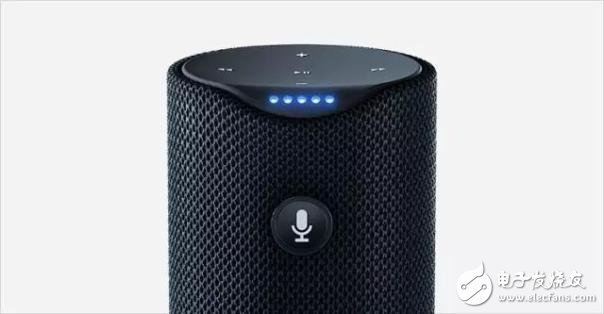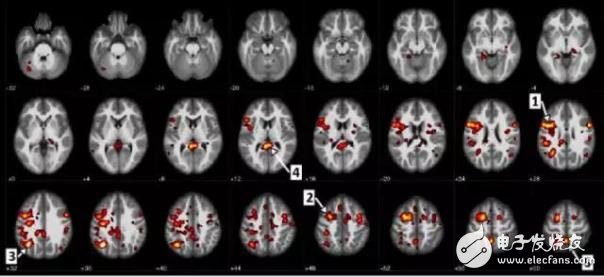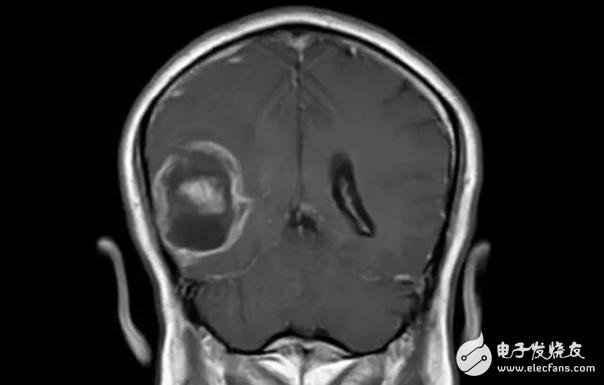The wave of artificial intelligence has swept through many fields in the world, and has promoted many scientific and technological achievements. Let us take a look at the application of artificial intelligence in the field of medical health.
1. Harvard University: Flexible exoskeleton improves walking for stroke patients

Recently, a research team from Harvard University developed a flexible exoskeleton device based on human lower extremity dynamics, which was published in the recent Science TranslaTIonal Medicine. This device can assist stroke patients to provide activity and support during the long recovery after stroke. The exoskeleton device can be worn on the patient's partially paralyzed lower limbs, reducing asymmetry between the limbs, increasing ankle dorsiflexion, and reducing the energy required for the patient to walk on the treadmill and on the ground. The exoskeleton can be adjusted to provide support during the early or late stages of the gait cycle, depending on the patient's needs. Although long-term research is still needed, there is a significant improvement in walking immediately through the exoskeleton, which is a very promising way for neurological rehabilitation in stroke patients.
2. Conversible robot Woebot helps relieve depression and anxiety

Depression and mental health are a "ghost" existence for modern people. When the communication between people is somewhat difficult, intelligent robots can help. The chat robot, called Woebot, was developed in the Woebot lab in San Francisco and runs through Facebook Messenger as an individualized therapist who helps users solve mental health problems including depression and anxiety. Woebot uses human intelligence to communicate with users on a similar person-to-person basis, encouraging users to open their hearts and communicate emotionally. By communicating with artificial intelligence, the patient's symptoms are alleviated twice as fast as traditional treatments. Unlike doctors, AI's exclusive therapist can help 24 hours a day, whenever you need it.
3. Artificial intelligence helps stroke patients walk upright

Researchers from Switzerland and the Netherlands have launched an exciting project to design an external device that uses intelligent assistive technology to help patients with stroke and spinal cord injury re-walk through advanced artificial intelligence software and mechanical harnesses. The study was also published in the recent Science TranslaTIonal Medicine. The team designed an adaptive algorithm that combines individualized robotic harnesses with artificial intelligence and robots to anticipate the various realities encountered by the user, calculating and providing corresponding upward or forward support, such as patients. It is walking in a straight line, on a wavy road, or on an irregular step, and so on. In the test, the technology proved to work well and given the corresponding strength support. Such devices have enormous potential for application and may become part of the clinical routine of rehabilitation centers in the future.
4. Artificial intelligence helps prevent sudden death

Sudden death of the heart will deprive countless lives every year. It is crucial to prevent and diagnose sudden death of the heart. AliveCor and Mayo Clinic have jointly developed breakthrough artificial intelligence technology to help prevent sudden cardiac death. AliveCor is the FDA-approved technical leader in personal electrocardiogram (ECG) devices, and in collaboration with the Mayo Medical Center, has developed a diagnostic tool for early screening of long QT in medical or personal non-medical conditions. . AliveCor's patented artificial intelligence technology, advanced algorithms and millions of ECGs, combined with the Mayo Medical Center's big data and professional clinical experience, have greatly improved safety and reduced risk. AliverCor offers a commercially available FDA-approved ECG device that provides heart health care to patients. These ECGs will bring together a large amount of personal health data, and the learning of these data will improve the analysis of traditional ECG. Very meaningful. We hope that such artificial intelligence will ultimately benefit more people and provide more protection for human health.
5. What can artificial intelligence do for people with diabetes?

"Alexa, help manage my diabetes!" This bold idea comes from the Alexa Diabetes Challenge launched by Merck in the early part of this year. Participants need to give voice support systems new features, emotional awareness coaching, nutrition assistants, and more. As a detective generally finds the user's risk behavior. Invented the well-known diabetes drug Januvia's Merck's Luminary Lab and Amazon Web Services jointly selected five out of 96 submissions. In Merck's long-term plan, a tool can be developed for a variety of chronic disease management, using Amazon's Lex smart platform and voice support for Alexa's home system. The mobile app is very common in the pharmaceutical industry, but this is the first challenge built on a voice-enabled home system. Perhaps it takes a lot of effort to turn these challengers into realistic products. However, more and more people are linking artificial intelligence to health and participating enthusiastically. This is a very good start.
6. IBM and the University of Alberta: How brain imaging predicts schizophrenia

Traditional schizophrenia relies on subjective methods, and researchers at IBM and the University of Alberta are now working to change that. They jointly developed machine learning algorithms to help scientists reveal how to objectively quantify schizophrenia through brain imaging. There is no specific test method for schizophrenia, so the diagnosis needs to observe the symptoms and exclude other potential causes such as drug abuse or other mental disorders. Although scientists have observed that healthy people's brain imaging is still different from schizophrenia patients, it is not currently used as an objective criterion for diagnosis. Researchers used machine learning algorithms to analyze functional magnetic resonance imaging (fMRI) and analyzed healthy people, schizophrenia, and other people with mental disorders. The research team used machine learning to create a model that identifies the brain and schizophrenia, which can achieve a 74% discrimination between patients with or without schizophrenia. Artificial intelligence will gradually improve under the support and accumulation of data. Researchers expect that their artificial intelligence and machine learning will be used to analyze more neurological and psychiatric disorders in the future, helping doctors better assess and treat patients.
7. IBM Watson assists early research on whole genome sequencing of brain tumors

The power of artificial intelligence is largely due to its ability to learn and memorize large amounts of content in a short period of time. IBM Watson studied the genomic data and narrative papers of brain tumors, taking only a fraction of the time required by humans. IBM and the New York Genomics Research Center have jointly created a version of the Watson supercomputer for cancer genome research. The researchers used whole-genome sequencing to sequence tumor DNA, tumor RNA, and normal blood DNA from glioblastoma. A team of oncologists and bioinformatics scientists spent 1.6 hours refining the information. Watson's artificial intelligence processed the genomic data in only 10 minutes and reached a "similar conclusion" to the expert group.
Although the performance of artificial intelligence still has various shortcomings, many experiments have shown us great potential for application. In the future health field, there will be more data that needs to be quickly learned, screened, organized and analyzed. Artificial intelligence will bring more value to human beings in its gradual growth.
Incremental encoders provide speed, direction and relative position feedback by generating a stream of binary pulses proportional to the rotation of a motor or driven shaft. Lander offers both optical and magnetic incremental encoders in 4 mounting options: shafted with coupling, hollow-shaft, hub-shaft or bearingless. Single channel incremental encoders can measure speed which dual channel or quadrature encoders (AB) can interpret direction based on the phase relationship between the 2 channels. Indexed quadrature encoders (ABZ) are also available for homing location are startup.
Incremental Encoder,6Mm Solid Shaft Encoder,Hollow Rotary Encoder,Elevator Door Encoder
Jilin Lander Intelligent Technology Co., Ltd , https://www.landerintelligent.com